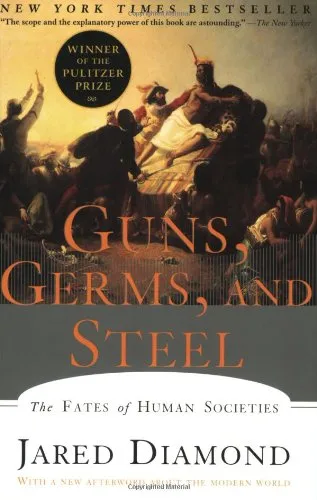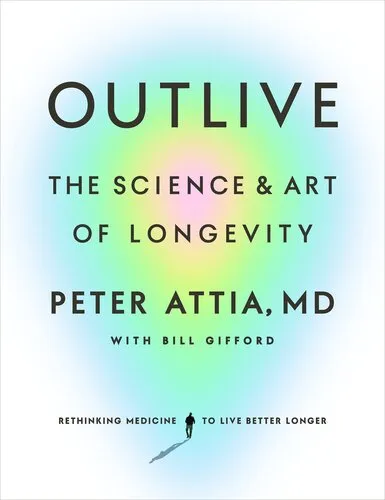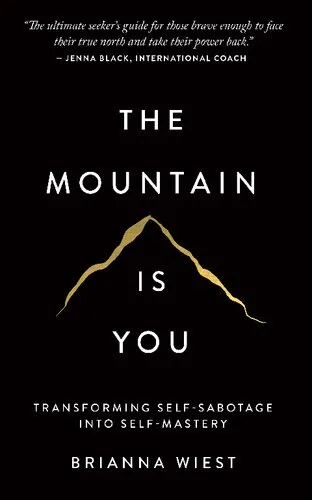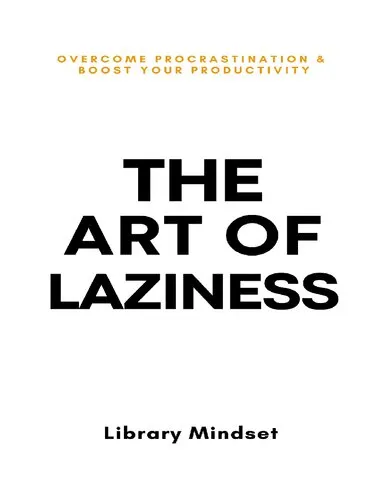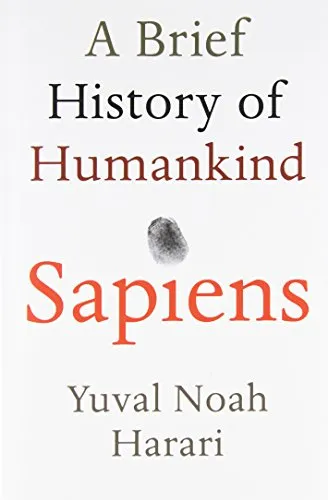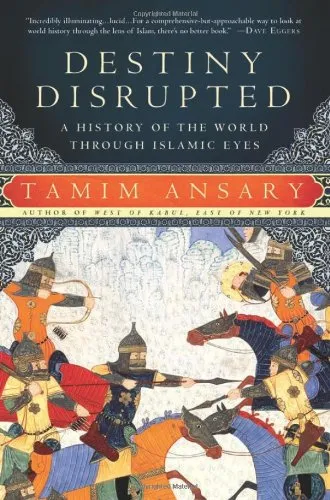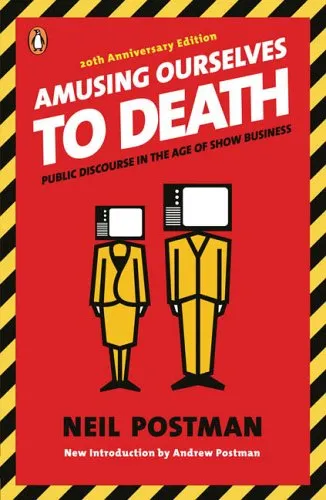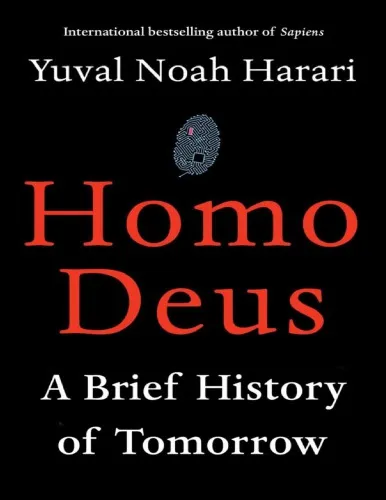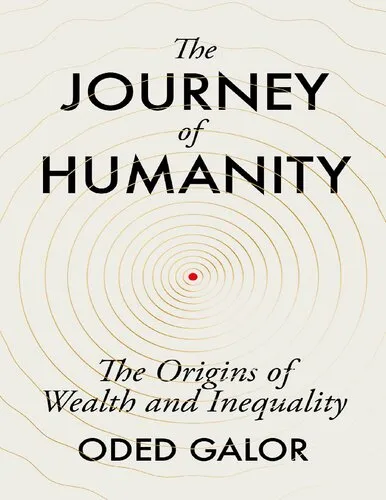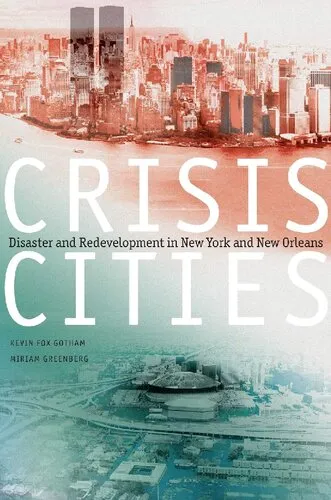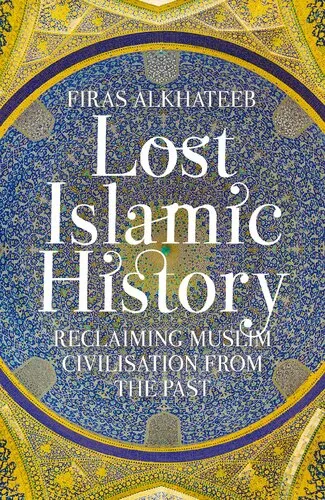Guns, Germs, and Steel: The Fates of Human Societies
4.5
بر اساس نظر کاربران

شما میتونید سوالاتتون در باره کتاب رو از هوش مصنوعیش بعد از ورود بپرسید
هر دانلود یا پرسش از هوش مصنوعی 2 امتیاز لازم دارد، برای بدست آوردن امتیاز رایگان، به صفحه ی راهنمای امتیازات سر بزنید و یک سری کار ارزشمند انجام بدینکتاب های مرتبط:
مقدمهای به کتاب 'Guns, Germs, and Steel: The Fates of Human Societies'
کتاب 'Guns, Germs, and Steel: The Fates of Human Societies' نوشته 'جارِد دایموند' یکی از کتابهای پرفروش و تاثیرگذار در زمینه تاریخ بشری و علل تفاوتهای توسعه یافتگی در جوامع مختلف انسانی است.
خلاصهای از کتاب
کتاب 'Guns, Germs, and Steel' به بررسی این میپردازد که چرا و چطور برخی جوامع انسانی به توسعهی تکنولوژی و قدرت نظامی دست یافتند، در حالی که دیگر جوامع از این ویژگیها بیبهره ماندند. دایموند بر این باور است که تفاوتهای در دسترس بودن منابع زیستی و محیطی نقش مهمی در این تفاوتها بازی کردهاند. او استدلال میکند که عواملی چون جغرافیا، دسترسی به گیاهان و حیوانات قابل پرورش، و تبادل تکنولوژی و اطلاعات، بیشترین تاثیر را بر توسعهی جوامع داشتهاند. این کتاب به ما نشان میدهد که چگونه این فاکتورها به ظهور تمدنهای بزرگ و پیچیده منجر شدند و چرا برخی مناطق جهان پیشرفت سریعتری نسبت به دیگران داشتند.
نکات کلیدی
- تأثیر محیط جغرافیایی بر پیشرفت جوامع بشری.
- نقش حیوانات اهلی و گیاهان قابل کشت در توسعه اقتصادهای رو به رشد.
- تبادل ایدهها و تکنولوژیها میان فرهنگهای مختلف و تأثیر آن بر سرعت توسعه.
- نقش مهم Pathogens و بیماریها در تغییرات جمعیتی.
جملات معروف از کتاب
«تاریخ، نه بر اساس تفاوتهای نژادی یا ژنتیکی، بلکه بر اساس فرصتهای متفاوت محیطی پیش رفته است.»
«پیشرفت تکنولوژیکی نه به خاطر تفاوتهای ذاتی میان مردم، بلکه به خاطر تفاوتهای محیطی و دسترسی به منابع قابل دست یافتنی است.»
چرا این کتاب مهم است
کتاب 'Guns, Germs, and Steel' نگاهی نوین به تحلیل تاریخ بشر ارائه میدهد و سعی دارد تصورات قبلی را که بر اساس تفاوتهای نژادی ناسازگاریهایی در توسعه جهانی موفقیت یا شکست جوامع مختلف ارائه میدهند، به چالش بکشد. نگرش علمی و مبتنی بر شواهد دایموند، این کتاب را به یکی از مهمترین متون مرجع در زمینه تاریخ و جغرافیای انسانی تبدیل کرده است. این کتاب برای فهم بهتر تاریخچه توسعهی انسانی و چالشهای پیش روی ما در آینده اهمیت فراوانی دارد.
Welcome to an enlightening journey through human history, as presented in "Guns, Germs, and Steel: The Fates of Human Societies" by Jared M. Diamond. This seminal work has reshaped our understanding of how human societies have developed over the millennia. With a focus on the influence of environmental factors, Diamond's exploration provides a profound analysis of the global disparities we witness today. Below, you will find a detailed summary, key takeaways, memorable quotes, and an explanation of the book's significance.
Detailed Summary of the Book
In "Guns, Germs, and Steel," Jared Diamond sets out to answer a fundamental question: Why have different human societies followed disparate paths of development? The book begins by addressing a seemingly simple query posed by a friend from Papua New Guinea: "Why do white men have so much cargo while we New Guineans have so little?" This question propels Diamond into a comprehensive investigation of historical patterns and environmental influences that have shaped human societies.
Diamond argues that the differences in societal development across various regions cannot be attributed to racial or genetic superiority. Instead, he emphasizes the centrality of geography and environment. The core thesis of the book is that the availability of domesticable plants and animals, combined with the orientation of continents, significantly influenced the pace and nature of societal development.
The book is structured around three pivotal factors: "Guns," symbolizing military technology; "Germs," representing infectious diseases that have significantly impacted indigenous populations; and "Steel," denoting the technological advancements that have enabled societies to expand and dominate others.
Diamond meticulously traces how these elements have historically empowered certain societies to conquer or eclipse others. He provides detailed case studies, such as the conquest of the Incas by the Spanish, illustrating how a confluence of advantageous geographic conditions and European technology led to dramatic societal shifts.
Ultimately, "Guns, Germs, and Steel" urges readers to understand human history through the lens of environmental determinism, offering a comprehensive theory that synthesizes the disparate threads of our shared past.
Key Takeaways
- Geography, climate, and available resources are crucial in shaping the development of societies.
- The domestication of plants and animals enabled certain societies to transition from hunter-gatherer lifestyles to agricultural and technological development.
- Infectious diseases played a critical role in the conquest and colonization of societies by Europeans.
- Technological advances in weaponry and tools have allowed certain civilizations to dominate others.
- Understanding the environmental factors behind historical developments can debunk myths of racial superiority.
Famous Quotes from the Book
"History followed different courses for different peoples because of differences among peoples' environments, not because of biological differences among peoples themselves."
"The hand of history is everywhere, and human societies have passed down legacies shaped by geographic and environmental factors."
"The striking differences between the long-term histories of peoples of the different continents...owe little to the differences among peoples themselves."
Why This Book Matters
"Guns, Germs, and Steel" is more than just a chronicle of historical events. It presents a lens through which we can better understand the dynamics of global inequality. By shifting the focus from human differences to environmental influences, Diamond offers an intellectually rigorous and transformative narrative that challenges traditional views on the development of civilizations.
This book is essential for anyone seeking to grasp the complexities of human history. It bridges the gap between science and the humanities, providing insights that have profound implications for contemporary discussions around socio-economic development and inequality.
دانلود رایگان مستقیم
شما میتونید سوالاتتون در باره کتاب رو از هوش مصنوعیش بعد از ورود بپرسید
دسترسی به کتابها از طریق پلتفرمهای قانونی و کتابخانههای عمومی نه تنها از حقوق نویسندگان و ناشران حمایت میکند، بلکه به پایداری فرهنگ کتابخوانی نیز کمک میرساند. پیش از دانلود، لحظهای به بررسی این گزینهها فکر کنید.
این کتاب رو در پلتفرم های دیگه ببینید
WorldCat به شما کمک میکنه تا کتاب ها رو در کتابخانه های سراسر دنیا پیدا کنید
امتیازها، نظرات تخصصی و صحبت ها درباره کتاب را در Goodreads ببینید
کتابهای کمیاب یا دست دوم را در AbeBooks پیدا کنید و بخرید
1465
بازدید4.5
امتیاز0
نظر98%
رضایتنظرات:
4.5
بر اساس 0 نظر کاربران
Questions & Answers
Ask questions about this book or help others by answering
No questions yet. Be the first to ask!
